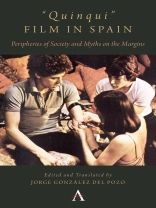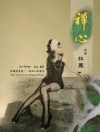This volume of essays focuses on films of the so-called quinqui genre, films created during the 1970s–1980s depicting the lives of young criminals from the outskirts of Spanish cities, that arose/spread during the uncertain transitional period in a Spain moving from a dictatorship to a democracy. The quinqui films, produced and released on a shoestring budget, were nonetheless immensely popular, although never fully considered as part of the national film production in academic circles due to their “B” nature and low quality. These films encapsulate many of the concerns that Spaniards were facing (unemployment, class conflict and disparity, wild economic growth, increasing violence and crime activity, illegal drugs ravaging the youth, etc.) and consequently they had an impact on social, cultural, and emotional levels in the reborn country. In addition to recent interest in these films as cultural products, this book presents a thorough and multi-perspective analysis of the implications for film and society that these films reveal, clarifying both: the Spanish filmic panorama as well as the canon, and the socio-political situation in a country that was going through one of the most controversial and tumultuous times of its contemporary history.
Jadual kandungan
Prologue: Rehearsing Circles, Hilario J. Rodríguez; Introduction: Quinqui Film as a Reflection of the Transition, Illusions and Shadows of the Great Change, Jorge González del Pozo and Juan Laborda Barceló; Chapter 1 Cinema on the Margin. Reflection on Quinqui Filmography by Eloy de la Iglesia, Javier Sánchez Cortina and Teresa Cortina de la Calle; Chapter 2 Heroes and Anti-heroes. . . From the Neighborhood: The History of Postmodern ‘Robinhoods”. Alberto Pascual Pérez; Chapter 3 The Repercussion in the National Press of Derpisa, deprisa (1981), Alejandro Gutiérrez; Chapter 4 Siete vírgenes (2005): Quinquis for the New Millennium, Fernando Marañón; Chapter 5 Margin, Marginality and Delinquency in the area of Quinqui: from Nomadism to the Suburbs in Volando voy (2006) by Miguel Albaladejo, Agustín Cuadrado Gutiérrez; Chapter 6 Todos me llaman gato (1980), Suburban Animals, Andrés Maté Lázaro; Chapter 7 Women on the Warpath. Perras callejeras (1985) by José Antonio de la Loma, Juan Laborda Barceló; Chapter 8 Quinquilleras, Exploitation and Forced Capitalism in Barcelona sur (1981) by Jordi Cadena: An Atypical Case of Delinquent Women in the Unstructured City of the 80s during the Spanish Transition, Jorge González del Pozo; Index.
Mengenai Pengarang
Jorge González del Pozo is a full professor of spanish at the University of Michigan-Dearborn where he teaches Spanish literature, film, culture and language.












